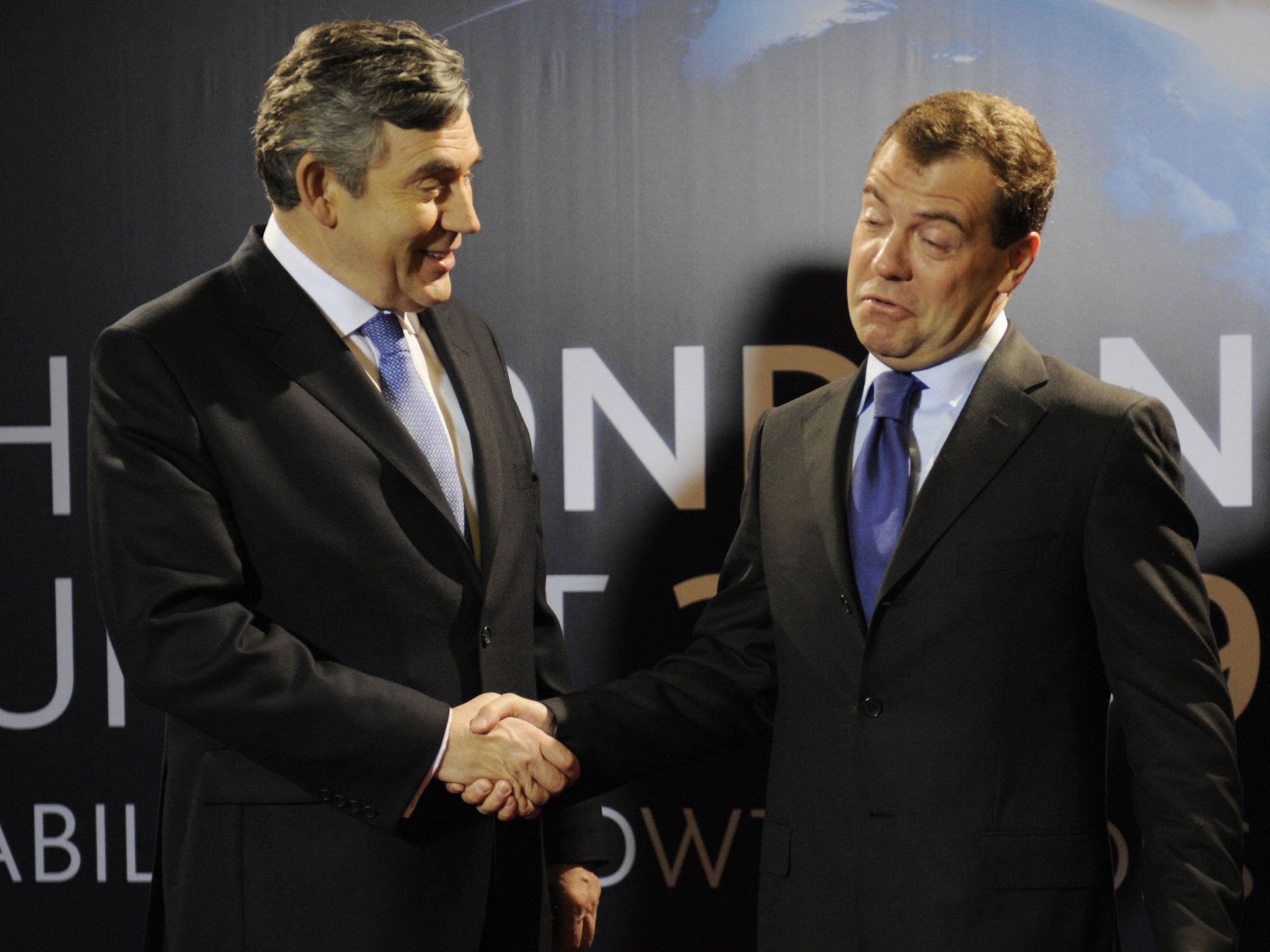G20 summit: Britain plunged into diplomatic row over claims GCHQ spied on foreign politicians
Intelligence services were even said to have set up internet cafés at the summit venues which they used to read emails

Your support helps us to tell the story
From reproductive rights to climate change to Big Tech, The Independent is on the ground when the story is developing. Whether it's investigating the financials of Elon Musk's pro-Trump PAC or producing our latest documentary, 'The A Word', which shines a light on the American women fighting for reproductive rights, we know how important it is to parse out the facts from the messaging.
At such a critical moment in US history, we need reporters on the ground. Your donation allows us to keep sending journalists to speak to both sides of the story.
The Independent is trusted by Americans across the entire political spectrum. And unlike many other quality news outlets, we choose not to lock Americans out of our reporting and analysis with paywalls. We believe quality journalism should be available to everyone, paid for by those who can afford it.
Your support makes all the difference.Britain was plunged into a diplomatic row last night following claims that foreign politicians and diplomats were repeatedly spied upon when they attended two G20 summit meetings in London.
The allegations provoked anger in Turkey, Russia and South Africa, whose dignitaries were reportedly targeted by the covert surveillance operations in 2009 while Gordon Brown was Prime Minister.
The intelligence services were even said to have set up internet cafés at the summit venues which they used to read emails sent by visiting officials.
David Cameron refused yesterday to comment on the allegations, which proved an embarrassing distraction for him as the leaders of G8 nations gathered for a two-day meeting at Lough Erne, Northern Ireland.
However, one British source said he was not surprised by the claims and said it was always assumed other delegations tried to listen in to other countries' private discussions at international summits.
Turkey, up to 15 of whose officials could have been snooped on in London, spelt out its fury and contacted the UK's ambassador to Ankara to demand an explanation. It described the report in the Guardian as "very worrying", particularly as Turkey and Britain are both members of Nato.
"We want an official and satisfactory explanation," said a spokesman for the Turkish foreign ministry. "If these allegations are true, this is going to be scandalous for the UK.
"At a time when international co-operation depends on mutual trust, respect and transparency, such behaviour by an allied country is unacceptable."
Clayson Monyela, a spokesman for South Africa's foreign ministry said in his twitter feed that the matter was "extremely disturbing" and was "receiving attention".
He said Britain and South Africa had cordial relations and called on London to investigate the claims "with a view to take strong & visible action".
Alexei Pushkov, the chief of foreign affairs committee in the lower house of Russian parliament, tweeted: "It's a scandal! The U.S. and British special services tapped (then President Dmitry) Medvedev's phone at the 2009 G-20 summit. The US denies it, but we can't trust them."
Sergei Devyatov, a spokesman for the Federal Protection Service, which provides security for Russian government officials, said in a statement: "The Federal Protective Service is taking every necessary measure to provide the appropriate level of confidentiality of information for top-ranking officials of the country."
According to yesterday's report, secret documents show that delegates to the two summits had their computers monitored and phones intercepted on the Government's orders.
The Guardian said the leaked papers suggested the operation was sanctioned at a senior level in Mr Brown's government. One briefing paper said the head of GCHQ was about to meet David Miliband, who was the Foreign Secretary at the time.
One former Brown aide told the Independent yesterday: "We always assumed that everyone else did it at such meetings. We were advised not to plug in our laptops, use photocopiers, wi-fi or our usual Blackberrys - we would be given a different one for the duration of a summit.
"Traditionally the French were always at it. Others joined in so as not to be at a disadvantage. It was about knowing the thinking in the other delegations. But usually it didn't yield much that was very surprising. It was regarded as fair game because every government did the same. I don't know if it ever extended from governments to civil society or the media, that would be different and much more sinister."
Tackled about the reports, Mr Cameron said today: "We never comment on security or intelligence issues and I am not about to start now. I don't make comments on security or intelligence issues - that would be breaking something that no government has previously done."
David Miliband could not be contacted last night.
Join our commenting forum
Join thought-provoking conversations, follow other Independent readers and see their replies
Comments